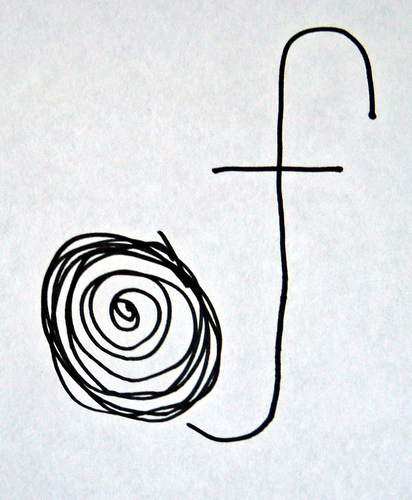Over a period of a few days last week I posted a series of updates onto Twitter that, taken together, added up to less than twenty words. I dragged out across fourteen tweets what could easily fit within one. And instead of text alone, I relied on a combination words and images. I’m calling this elongated, distributed form of social media artisanal tweeting. Maybe you could call it slow tweeting. I think some of my readers simply called it frustrating or even worthless.
If you missed the original sequence of updates as they unfolded online, you can approximate the experience in this thinly annotated chronological trail.
I’m not yet ready to discuss the layers of meaning I was attempting to evoke, but I am ready to piece the whole thing together—which, as befits my theme, actually destroys much of the original meaning. Nonetheless, here it is:











I don’t have much of anything coherent to say here, Mark, other than I enjoyed your tweets and your post here. I have been thinking of Ian Bogost’s notion of procedural rhetoric quite a bit recently and then the notion of procedurality generally. As a rhetorician, I’m interested both in rhetoric’s procedures (persuasion, identification, interpretation, argumentation, analysis, etc.) and the limits of these procedures, the places they break down and fail to cohere. Your thoughts on maps resonate here. I work in a lab (the Digital Writing and Research Lab at UT Austin) that does great work with mindmaps and Google maps, and I certainly appreciate the uses of mapping in pedagogy. And yet, there seems to be something that all of these gestures toward mapping and proceduralizing experiences miss, something you gesture toward in your tweet fragments.
Again, I don’t have much to add here, other than the fact that your tweets are helpful in thinking through (or perhaps doing something else with) these possibilities. Will Cullen Hart (Olivia Tremor Control, Circulatory System) writes lyrics along these lines, so I’ll offer some of these as some sort of contribution to the discussion:
if we’re going out
should we bring a map?
or should we lose ourselves in meaning?
where we are – in the blink of an eye
you get several meanings
shall we dust off the maps?
or has illusion transformed us?
should a cloud replace a compass?
I wonder what we can attend to in order to destabilize our thinking about space and time. Hart’s music works as a starting place for me. I’d be interested to hear your thoughts. Does slow tweeting break up the coherence of maps and timelines, sending messages that cannot be pinned to a particular location or time?